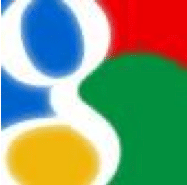Google’s Real Influence on Education
CompetencyWorks Blog
 With the education market heating up, we are beginning to see many of the big names trying to carve out their space in transforming the education system. From Apple to Microsoft, Newsweek to LinkedIn, and everything in between, it seems as if everyone has a solution or a tool that helps to streamline the process of transferring knowledge and skill-sets to the next generation to prepare them for an ever-connected world.
With the education market heating up, we are beginning to see many of the big names trying to carve out their space in transforming the education system. From Apple to Microsoft, Newsweek to LinkedIn, and everything in between, it seems as if everyone has a solution or a tool that helps to streamline the process of transferring knowledge and skill-sets to the next generation to prepare them for an ever-connected world.
Many of us look to innovations as being a gadget, app, or piece of technology that helps us facilitate the learning of objectives, making more efficient use of time in the classroom and working towards actionable metrics. We sometimes do not think about the process efficiency or innovation that can allow for this and a whole lot more.
As an educator, we look at these innovations as a way to help us in our quest to educate. Understanding that there is no “magic bullet” or save all for the educational landscape, there is one innovation that I feel will have the greatest impact on my students’ learning outcomes:
Google’s famed “20% time.”
The idea comes from the concept that for 8 hours per week, Google employees were able to explore and tinker in things that they found interesting that may or may not be directly related to their work. During this time, management focused on promoting the exploratory mindset and fostering an environment where discovery was the ultimate goal. The results were many of the starting points for some of Google’s better-known products as well as a system that has been adopted in some sort by many companies across the globe.
Below are a couple of reasons why this activity/methodology is a great one for the competency-based environment. Please feel free to post thoughts in the comments!
1. Ownership of the Process by the Learner:
The premise of 20% time is that the participant has the ability to use 20% of their time to work on something that interests them. We all know that not every one of our students is going to be motivated all of the time with the activities that facilitators use in their classroom. By putting the ball in the student’s court, however, they have the ability to validate learning in a way they enjoy. This can lead to heightened motivation, as well as the adoption of life long skills such as perseverance, failure acceptance, and others that are needed in the real world.
2. Open Application of Skill Sets.
When the student has the ability to get creative with their learning, they are placed into an environment that fosters the higher order thinking skills needed in today’s world. Having to evaluate, analyze, and apply knowledge in a medium to convey a message is the “holy grail” of what great educators want from their students.
3. Because, It’s Not About Time…
Looking at the ability of prove competence opens the door to personalized learning. Letting students choose what they would like to do (with guidance), as well as picking the pathway to success, allows for the possible capitalization of learning to transcend the classroom walls. Time on task doesn’t necessarily take the same shape any longer, and if the name of the game is validating competence, there are more ways to do it while capitalizing on students’ engaged learning time.
Moving through the start of the year, I will be using the concepts of Google’s innovation in my own classroom. If any of you are interested in sharing your experiences, or would like to participate yourselves, I would love the opportunity to connect!
photo credit: google images
Justin Ballou is a high-school social studies teacher in New Hampshire. Besides teaching, he is active building/running an education startup called Socrademy, several business ventures, and enjoys spending time with his beautiful wife. With competency-based systems, edtech, and authentic learning as his go-to topics, you can reach him at [email protected] to ask questions or leave comments, and follow him on twitter (@socrademy).